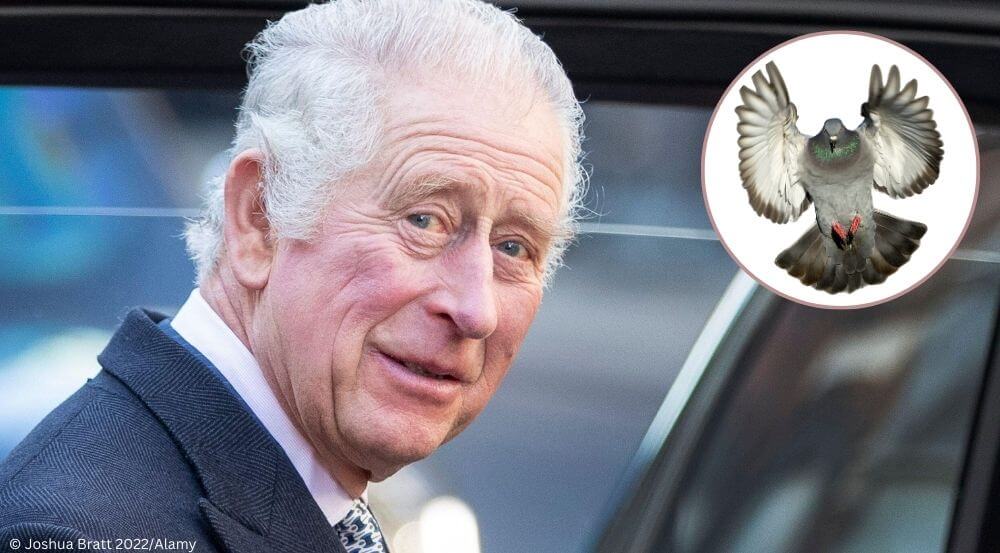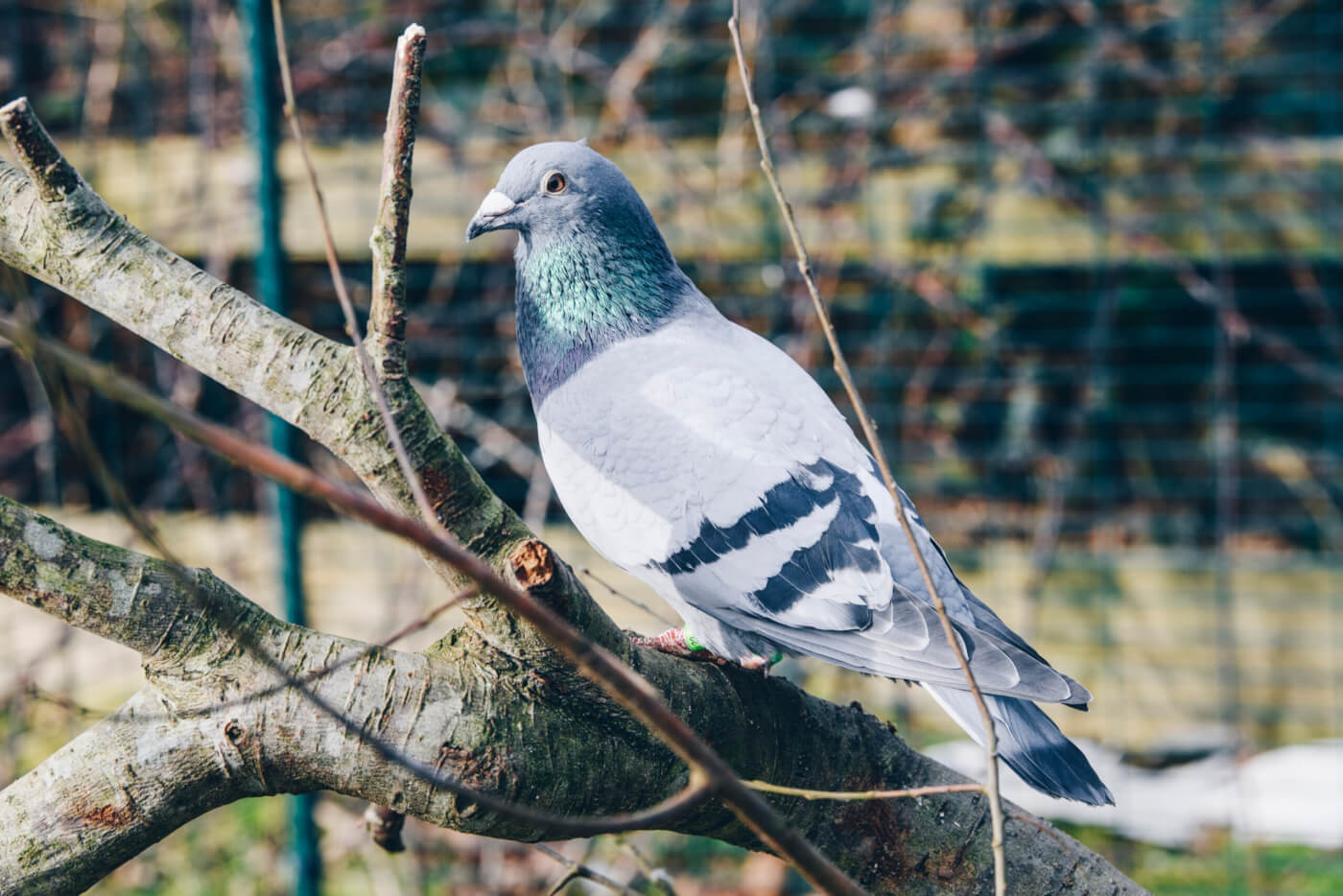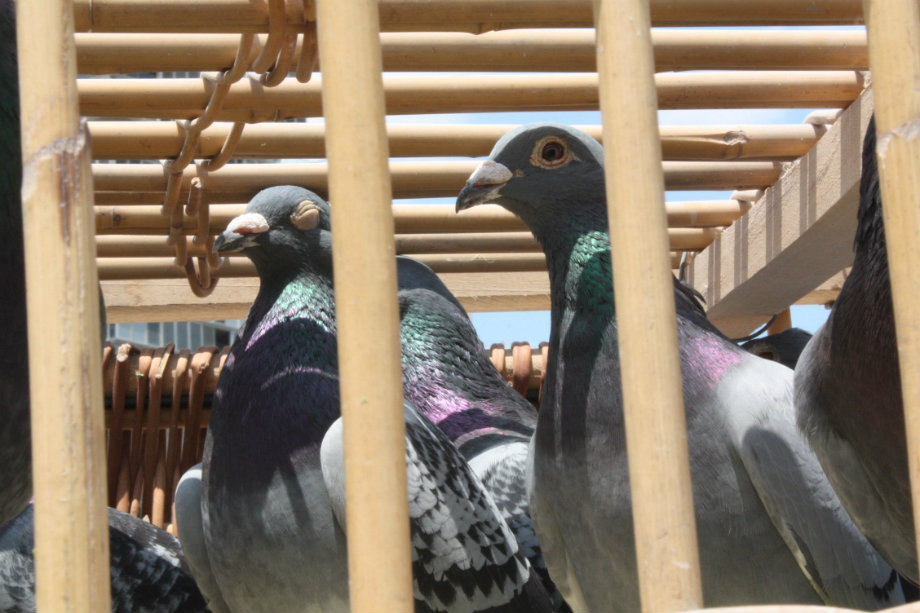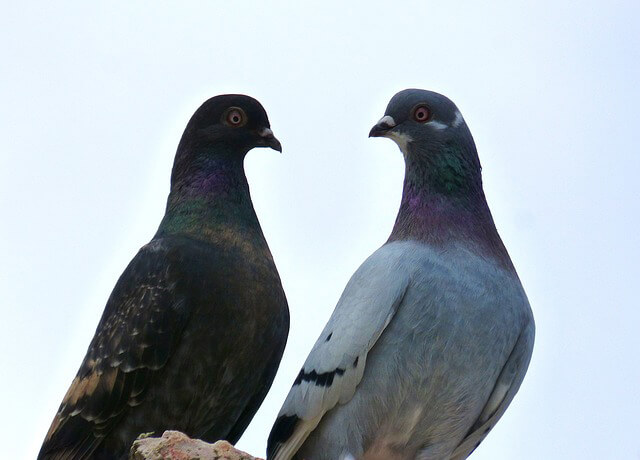Dame Vera Lynn would be cheering! PETA applauded King Charles for sparing birds by banning foie gras from all royal events and residences, and we thank him now for refusing royal patronage to the National Flying Club and the Royal Pigeon Racing Association.

As Dame Vera knew, pigeons have served honourably in the military, saving soldiers’ lives by delivering vital coded messages under fearfully dangerous conditions, which earned them the most Dickin Medals (the equivalent of the Victoria Cross for animals) of any species. But she pleaded for them to be left alone in peacetime – including by not exploiting these loyal, family-oriented birds by forcing them to cross the dangerous English Channel simply for human entertainment and gambling.
Pigeon racing is a blood sport in which birds are released far from home in foreign countries and unfamiliar surroundings, exploiting their natural homing instinct to return to their families, their life partners, and their young by compelling them to struggle through sea crossings so vast they can’t see land for miles and may die in storms or drown due to exhaustion or disorientation. In rejecting the Pigeon Racing Association’s request for royal patronage, the king has reduced the industry’s social viability, and PETA hopes his next bird-friendly act will be to disband the Royal Loft and convert it into a much-needed sanctuary for lost, injured, and unwanted birds.
This momentous news follows numerous appeals by PETA respectfully calling on His Majesty to do right by these brave birds by withdrawing his patronage from pigeon-racing events and associations. It also comes after PETA took possession of three birds from the Royal Loft who had been auctioned off and rehomed them to a sanctuary, protecting them from being used as breeding machines to produce yet more pigeons who would be forced to race.


Death and ‘The Graveyard’
For nothing more than a whim or a bet, pigeons are forced to fly vast distances on gruelling journeys that may – and in some cases, usually do – end in death. They may die in storms or from exhaustion or drown when they’re forced to fly over large bodies of water with nowhere to rest. They may collide with buildings or power lines, which can cut their breasts open to the bone, or be eaten by predators. They can also become lost, and with little experience finding food or water on their own, die from starvation or dehydration.
One race from France to England is over 600 miles long and includes a harrowing crossing of the English Channel, known as “the graveyard” by pigeon racers because so many birds die trying to cross it.


A PETA US investigation found that every one of the eight birds sent by Queen Elizabeth II to participate in the 2020 South African Million Dollar Pigeon Race died during the quarantine period, when stressed birds from all around the world were housed together in the same loft, potentially transmitting diseases to one another.
Even birds who survive these ordeals and make it home to their mates, young, or eggs aren’t safe, as those deemed not valuable enough for future races or breeding may be killed by breaking their neck, drowning them, or gassing them with unfiltered car exhaust.
Pigeons Deserve Better
Did you know that pigeons have their own unique culture, form life-long partnerships, and are nurturing parents who produce crop milk for their young? They display remarkable intelligence and self-awareness and deserve better than to be exploited in this cruel pastime.


Help End Pigeon Racing
Pigeon racing has no place in modern society. Please ask the secretary of state for environment, food, and rural affairs to protect pigeons by banning cross-Channel races:
